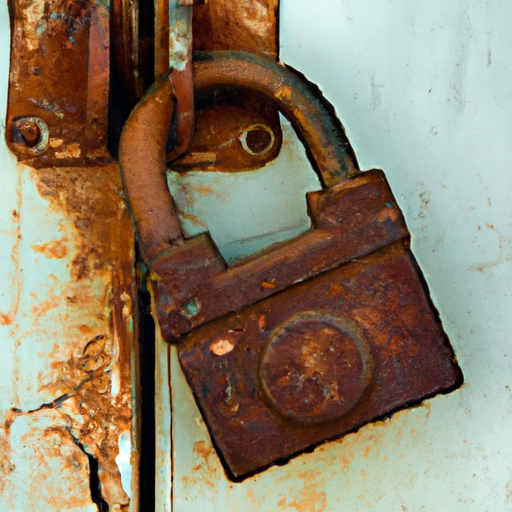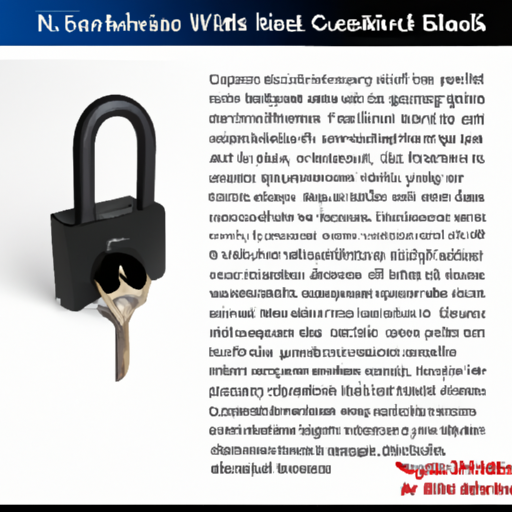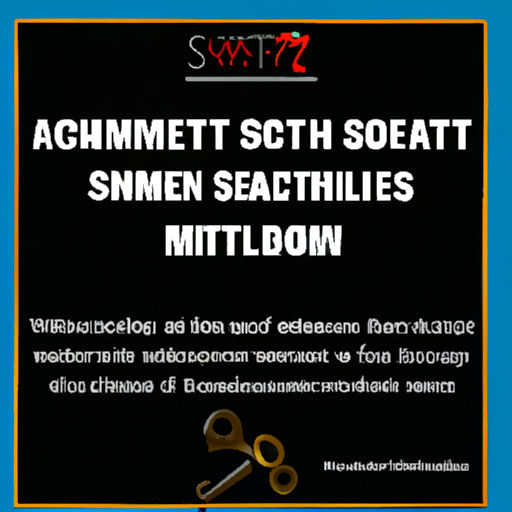
Have you ever found yourself struggling to open a lock that seems to be rusted shut? Frustration may set in as you try various methods to force the lock open, but before you give up hope, consider reaching out to a locksmith. Locksmiths, with their expertise in all things related to locks, may just be the solution you’re looking for when it comes to dealing with rusted locks. With their knowledge and specialized tools, they have the skills necessary to tackle even the most stubborn rusted locks, providing you with a quick and efficient solution. So, before you resort to extreme measures, give your local locksmith a call and let them work their magic on your rusty lock.
Can Locksmiths Deal With Rusted Locks?
If you’ve ever encountered a rusted lock, you know how frustrating it can be. Rust not only compromises the functionality of the lock, but it also poses a security risk. But fear not, because locksmiths are experts in dealing with all types of locks, including those that have succumbed to rust. In this article, we will explore the causes of lock rust, its impact on lock functionality, how to determine the severity of lock rust, common techniques for dealing with rusted locks, specialized tools used for rust removal, preventative measures to avoid lock rust, the advantages of hiring a professional locksmith, DIY rust removal tips, and common mistakes to avoid. So let’s dive in and see how locksmiths can come to the rescue when it comes to rusted locks!
Understanding Rusted Locks
Causes of Lock Rust
Rust is formed when iron or steel comes into contact with moisture and oxygen for an extended period. Locks are often exposed to these elements since they are located outdoors or in areas prone to humidity and moisture. Factors such as rainwater, condensation, and even sweat from human touch can contribute to the formation of rust on locks. Additionally, inadequate maintenance, including neglecting to lubricate the lock regularly, can accelerate rust formation.
Impact of Rust on Lock Functionality
Rust can significantly impact the functionality of a lock. It can make the lock mechanism stiff and difficult to operate, causing the key to get stuck or break inside the lock. In severe cases, the rust can completely seize the lock, rendering it unusable. It’s essential to address rusted locks promptly to prevent further damage and potential lockouts.

Determining the Severity of Lock Rust
Visual Inspection
A visual inspection is the first step in determining the severity of rust on a lock. Look for signs of discoloration, texture changes, or any visible rust flakes on the lock’s surface. Minor rusting may appear as small brown spots, while severe rust can make the lock appear corroded and worn. It is important to note that rust can also form internally, so it’s crucial to check the lock’s internal components if possible.
Lock Operation Testing
After a visual inspection, try operating the lock with its key. Pay attention to any resistance or roughness while turning the key. If the lock feels stiff or produces grinding noises, it is likely experiencing rust-related issues. Take note of any signs of the key getting stuck or not smoothly turning inside the lock. These observations will help determine the severity of rust and the necessary steps for repair.
Common Techniques to Deal with Rusted Locks
Lubricating the Lock
One of the simplest and most effective ways to deal with a rusted lock is by lubricating it. Locksmiths often use graphite powder or silicone-based lubricants to lubricate the lock’s internal mechanisms. These lubricants penetrate the rust, loosening it and allowing smoother operation. Applying lubricant regularly can also help prevent future rust formation.
Using Rust Removers
For locks with more stubborn rust, locksmiths may use rust removers specifically designed to dissolve rust. These rust removers typically come in liquid form and can be applied to the rusted areas using a brush or cloth. After allowing the rust remover to sit for the recommended duration, the lock can be flushed with water to remove the dissolved rust. It is crucial to thoroughly dry the lock afterward to prevent further rust formation.
Applying Penetrating Oils
Penetrating oils are another effective option for dealing with rusted locks. These oils have low viscosity, allowing them to seep through tight spaces and reach the rusted areas. Locksmiths often use penetrating oils like WD-40 or similar products to dissolve rust and lubricate the lock simultaneously. Applying penetrating oil and allowing it to sit for a few minutes can make it easier to manipulate the lock and remove any rust-related obstructions.

Specialized Tools for Rust Removal
Lock Picks and Tension Wrenches
Locksmiths have an array of specialized tools at their disposal, including lock picks and tension wrenches. These tools can be used to disassemble a lock and access its internal components. In the case of rusted locks, a locksmith may use these tools to carefully remove rust from hard-to-reach areas, ensuring that the lock’s mechanical parts are restored to their optimal condition.
Key Extractors
In situations where the key is stuck inside a rusted lock, locksmiths may utilize key extractors. These specialized tools are designed to remove broken keys from locks, including those affected by rust. Key extractors come in various sizes and shapes to accommodate different key and lock types, allowing locksmiths to safely extract broken keys without causing further damage.
Dehumidifiers
To prevent future rust formation, locksmiths may also recommend the use of dehumidifiers in areas that are prone to high humidity. Dehumidifiers help reduce moisture levels in the surrounding environment, minimizing the chances of rust formation on locks. By maintaining optimal humidity levels, dehumidifiers contribute to the longevity and functionality of locks.
Preventing Lock Rust
Regular Cleaning and Maintenance
Prevention is always better than cure, and the same applies to lock rust. Regular cleaning and maintenance can go a long way in preventing rust formation. By keeping locks clean and free from dust, dirt, and moisture, you can minimize the conditions conducive to rust. Incorporate lock cleaning into your routine maintenance tasks to keep your locks in optimal condition.
Weatherproofing the Lock
Another effective preventive measure is weatherproofing your locks. Apply a weather-resistant sealant or sprays designed to protect metal surfaces onto the lock to minimize its exposure to moisture and oxygen. Weatherproofing can create a barrier against the elements, reducing the chances of rust formation.
Using Rust-Resistant Locks
For areas exposed to high humidity or harsh weather conditions, consider investing in rust-resistant locks. These locks are typically made from materials such as stainless steel or brass, which are more resistant to rust formation. Rust-resistant locks can provide added peace of mind, knowing that your locks are less susceptible to corrosion.

DIY vs Professional Locksmith Services
Advantages of Hiring a Professional Locksmith
While DIY rust removal methods can be effective for minor cases, hiring a professional locksmith has several advantages. Locksmiths are highly trained and experienced in dealing with all types of locks, including rusted ones. They have the knowledge and expertise to assess the severity of rust and determine the most appropriate solutions. Moreover, professional locksmiths have access to specialized tools and products that may not be readily available to the average person. By hiring a locksmith, you can ensure that your rusted lock is restored to its full functionality without potential damage caused by DIY attempts.
Tips for DIY Rust Removal
If you decide to tackle rust removal on your own, there are a few tips to keep in mind. First, always exercise caution to avoid causing further damage to the lock or injuring yourself. Secondly, use appropriate rust removal techniques and products as mentioned earlier, such as lubricants, rust removers, and penetrating oils. Finally, remember that some locks may require professional intervention, especially if the rust is severe or the lock is damaged. It’s always wise to seek professional help if you’re unsure about handling rusted locks on your own.
Common Mistakes to Avoid
Using Excessive Force
One of the most common mistakes people make when dealing with rusted locks is using excessive force. Trying to force a rusted lock open can exacerbate the rust-related issues and even cause irreparable damage. Remember to be patient and gentle while attempting to manipulate a rusted lock and seek professional assistance if the lock doesn’t respond to your efforts.
Using Abrasive Materials
Abrasive materials like steel wool or sandpaper may seem like a quick way to remove rust from a lock, but they can do more harm than good. These materials can scratch the lock’s surface, compromising its integrity and making it more susceptible to future rust formation. Stick to gentle cleaning methods and avoid abrasive materials to ensure the longevity of your lock.
Neglecting Annual Lock Servicing
Preventative maintenance is crucial for keeping locks in optimal condition. Neglecting annual lock servicing can increase the risk of rust formation and other lock-related issues. By having a professional locksmith service your locks annually, you can catch and address any rust or mechanical problems before they worsen. Regular servicing will not only prolong the lifespan of your locks but also contribute to the security of your property.

Conclusion
Rusted locks may seem like a significant inconvenience, but with the help of skilled locksmiths, they can be dealt with effectively. Understanding the causes and impact of lock rust, along with the methods of rust removal and preventative measures, empowers you to take action and ensure the longevity and functionality of your locks. Whether you decide to hire a professional locksmith or tackle rust removal on your own, remember to exercise caution, be gentle, and seek professional assistance if needed. By taking proper care of your locks and addressing rust promptly, you can enjoy secure and functional locks for years to come.








